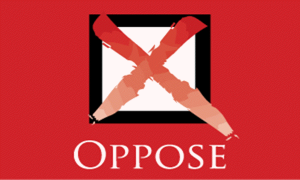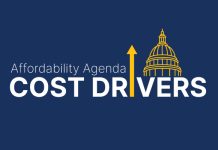 Legislation aimed at preventing online election disinformation should be vetoed because it is based on false assumptions, could have a chilling effect on online speech and raises First Amendment questions, according to a coalition including the California Chamber of Commerce and technology industry associations.
Legislation aimed at preventing online election disinformation should be vetoed because it is based on false assumptions, could have a chilling effect on online speech and raises First Amendment questions, according to a coalition including the California Chamber of Commerce and technology industry associations.
AB 2655 (Berman; D-Palo Alto) falsely assumes that that online platforms definitively know whether any particular piece of content has been manipulated in such a way that is defined under the bill.
AB 2655 requires large platforms to:
- develop and implement procedures for the use of state-of-the-art techniques to identify materially deceptive content and for labeling content that has been manipulated and is inauthentic;
- label certain such content inauthentic, fake, or false during specified periods before and after an election, no later than 72 hours after a consumer makes a report;
- develop procedures for Californians to report content that should be removed or labeled under the bill; and
- remove any post that meets requirements for removal no later than 72 hours after a report is made.
The bill authorizes candidates for elected office and the Attorney General, among others, to seek injunctive relief against a large online platform for noncompliance.
The coalition has been pointing out that AB 2655 is unlikely to have the desired outcomes as it incorrectly presumes platforms are the appropriate arbiter in deciding what constitutes election information. Most digital services are not equipped with the tools or expertise to make such judgments.
If enacted, the bill will result in significant suppression of political speech out of fear of liability, in violation of the First Amendment, which affords the broadest protection to political speech.
Because covered platforms are not privy to the intent and context behind each piece of content, they may inadvertently over-remove or over-label material. This could lead to user frustration and the suppression of political speech. Political speech is fundamental to the First Amendment’s purpose.
AB 2655 focuses on covered platforms rather than holding accountable the purveyors of the deceptive content. As a result, online platforms face an endless cycle of addressing deceptive content.
Already leading online businesses invest significant resources in moderating online content, including the specific types of content AB 2655 seeks to address. For example, responsible digital services providers take aggressive steps to moderate dangerous and illegal content, consistent with their terms of services.
These companies deliver on their commitment to their user communities with a mix of automated tools and human review. In 2021, a number of online businesses announced they have been participating voluntarily in the Digital Trust & Safety Partnership to develop and implement best practices to ensure a safer and more trustworthy internet.
Unfortunately, AB 2655 may ultimately do little to curb deceptive election content as opposed to causing significant removal of protected political speech that lies at the core of the First Amendment.
Staff Contact: Ronak Daylami


